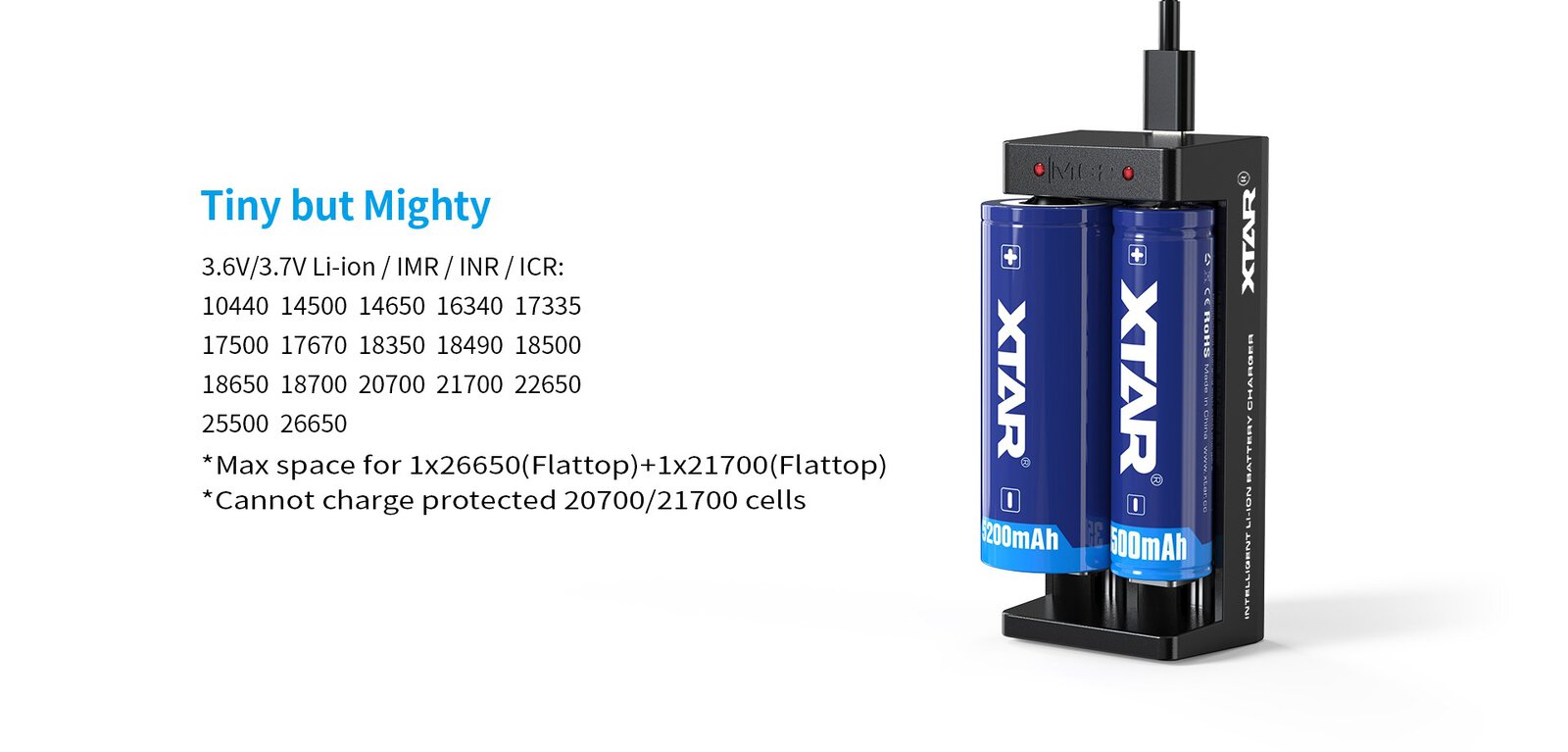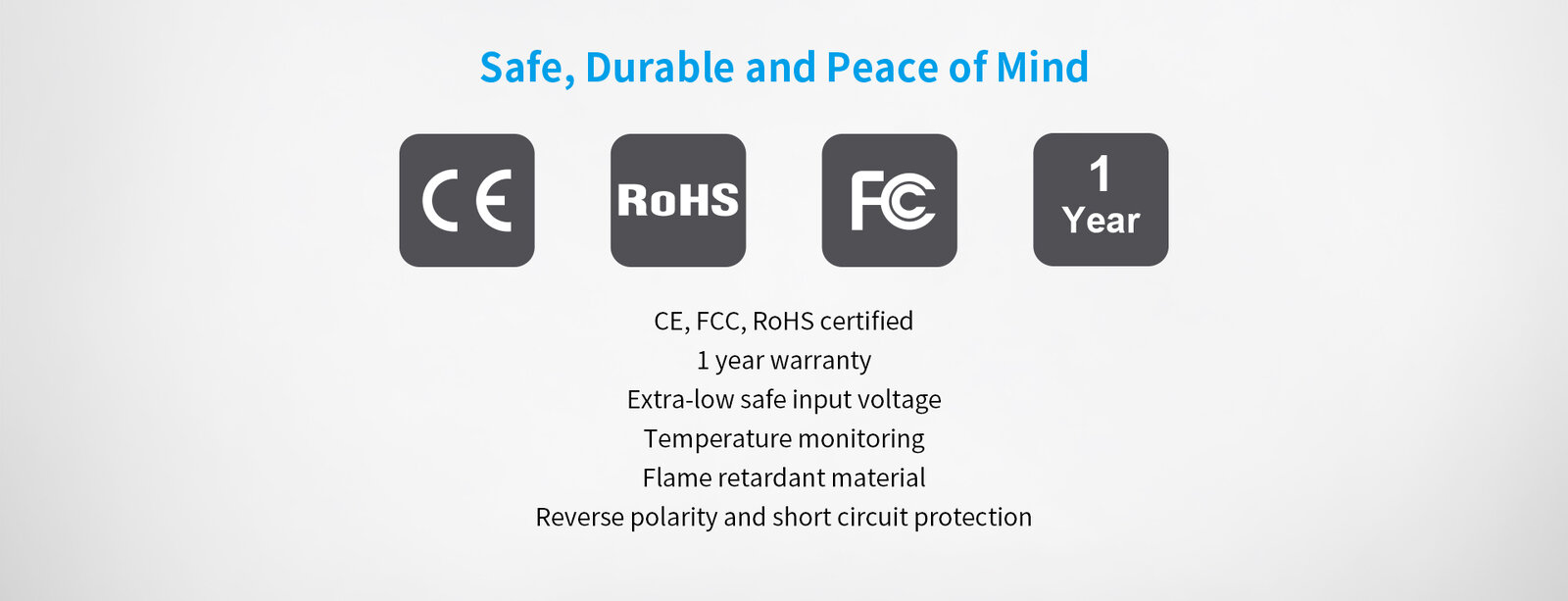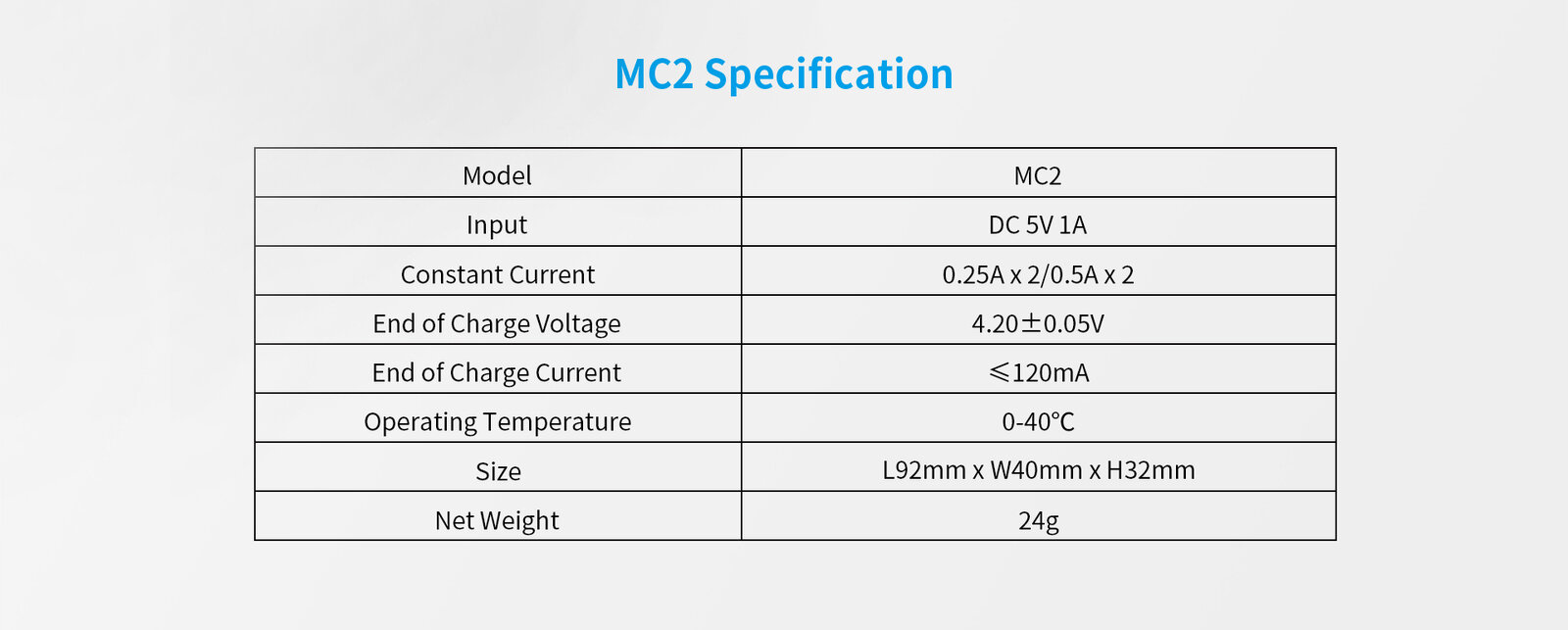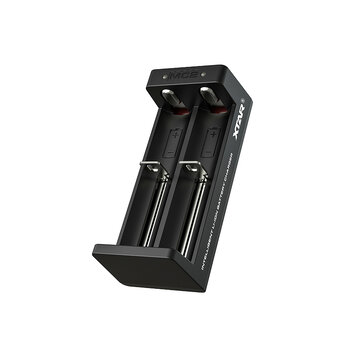
Professional compact processor chargerXtar MC2 USB-C
for Li-ion batteries in sizes 18650 and others
Key Features
- CPU-controlled three-stage TC/CC/CV charging process
- two independent charging channels
- powered by any USB-C charger or from a computer's USB port (min. 0.5A)
- small dimensions - easy to carry
- Deeply discharged cell reactivation function
- protections: short circuit, thermal, against reverse polarity
Xtar is a renowned manufacturer of high-quality Li-ion battery chargers, flashlights and Li-ion batteries. Xtar products are sold in more than 120 countries, including the most important countries. in the USA, Germany, Japan and Russia. Xtar uses the highest quality materials to manufacture its chargers – from the plastic of the housing to the high-performance electronics. All Xtar chargers have the CE certification required for European markets.
!! NEW VERSION WITH A CHANGED SOCKET TO USB-C!!

Hidden in the small casing is a fully professional processor charger with a three-stage TC/CC/CV charging process. Charges 1-2 Li-ion 3.6/3.7V cells of any capacity in sizes 10440, 14500, 14650, 16340, 17500, 17670, 18350, 18500, 18650, 18700. It is also possible to charge one battery size 20700, 21700 - only unprotected, 25500, 26500.

What is the TC/CC/CV loading method? It is a three-stage charging process for Li-ion cells that ensures that the cell is kept in good condition by charging with the right current at each stage and completing the charging process at the right time.
The different steps of the TC/CC/CV process are:
- TC phase: cells discharged below 2.85V are 'woken up' with a lower current.
- CC phase: after reaching 2.85V, the cell is charged with a constant current of 0.5A or 0.25A (depending on the power source used).
- CV phase: when the cell is almost charged, the charger switches to charging with decreasing current until the voltage of 4.2V on the cell is reached. Once 4.2V is reached, the charging process is complete - the battery is fully charged.
Batteries with a voltage of 4.1V or higher are treated as charged by the charger. To fully charge such a battery, insert it into the charger before turning it on. Charged batteries left in the charger will undergo a natural self-discharge process. Charging will resume when the battery voltage drops below 4.1V.

The Xtar MC2 charger has the function of reactivating deeply discharged cells and cells with a voltage of 0V. Many chargers on the market are not able to charge such batteries. This is where the Xtar MC2 charger comes to the rescue, which in many cases allows you to 'rescue' such cells. Simply insert a deeply discharged battery into the MC2 charger as you would with normal charging - the charger will detect the discharged battery and attempt to reactivate it.
Remark! Cells discharged below a certain level are irreversibly damaged and may not be able to reactivate. Avoid discharging Li-ion batteries too deeply - this can lead to a significant reduction in their durability and capacity or lead to their complete inefficiency.
Chargers from other manufacturers can significantly increase the temperature of the charged cells during charging. Too hot cells can cause them to wear out faster. With the MC2, Xtar has gone one step further from the competition by solving this problem in a simple way: using power from an external power supply. Thanks to this, the temperature of the battery charged in the MC2 will increase by no more than 15 degrees


The Xtar MC2 charger comes with a micro USB cable and a cover to protect the charger during transport. A power adapter is not included. To power the charger, all you need is any charger with a micro USB cable, e.g. from a phone, or a USB socket, or a computer with a free USB port. The recommended power of the charger is 1A (1000mA).


- Li-ion batteries 3.6-3.7V, protected (with PCM/PCB)
- Li-ion batteries 3.6-3.7V, unprotected
- 5 V (500 - 1000 mA)
- Processor-controlled TC/CC/CV for Li-ion
- 250 or 500mA ±50mA (depending on the power source used)
- 4.2V ±0.05V
- Reactivation of deeply discharged cells and 0V cells
- Before the charger overheats
- Against overload / short circuit
- Before reverse polarity of cells
- Charge
- MC2 charger, USB-C cable
- Li-ion batteries 3.6-3.7V, protected (with PCM/PCB)
- Li-ion batteries 3.6-3.7V, unprotected
- 5 V (500 - 1000 mA)
- Processor-controlled TC/CC/CV for Li-ion
- 250 or 500mA ±50mA (depending on the power source used)
- 4.2V ±0.05V
- Reactivation of deeply discharged cells and 0V cells
- Before the charger overheats
- Against overload / short circuit
- Before reverse polarity of cells
- Charge
- MC2 charger, USB-C cable
5th Floor, No.77 Xinhe Rd, Shangmugu
518000 Shenzhen
Chiny
Email: info@xtar.cc
Telephone: (+86) 755-25507076
Geodetów 24
80-298 Gdańsk
Polska
Email: contact@baltrade.eu
Telephone: 58 552 20 20









